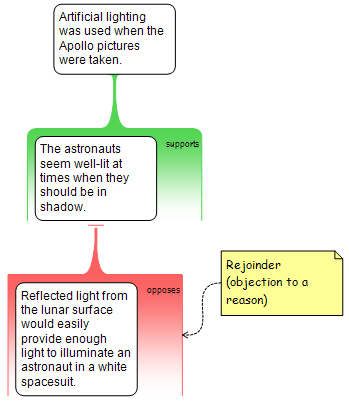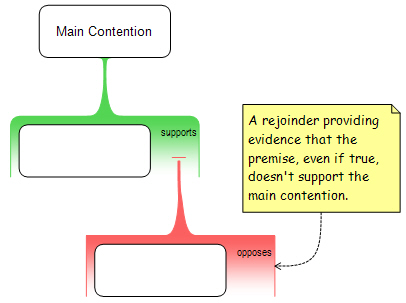
 |
|
|
|
|
| 4.4 Rejoinders | |
Similarly, there are objections to reasons. We refer to these as rejoinders.
| Discussion |
Example:
|
Moon hoax believers claim that artificial lighting was used when the Apollo pictures were taken, on the grounds that the astronauts seem well-lit at times when they should be in shadow. However reflected light from the lunar surface would easily provide enough light to illuminate an astronaut in a white spacesuit. [Based on 5.1,3] |
 The rejoinder provides evidence that the reason is not good evidence for the main contention - in this case because the premise should be rejected. |
There are two kinds of rejoinders. The first kind show that one of the claims in the reason is not true. The second kind show that the claims, even if true, don't provide good evidence for their contention.
|
|
 |
In other words, rejoinders work by providing evidence against one of the premises, or by providing evidence against the connection between the premises and their contention. We will explore this issue much more in Tutorial 5.
| New Concepts |
A rejoinder is an objection to a reason. A rejoinder provides evidence that a reason is not a good reason, i.e., not good evidence for its contention.
| Glossary | Contents | |
|
Copyright © Austhink 2003-2006 |
|
Last updated 28-Nov-2006